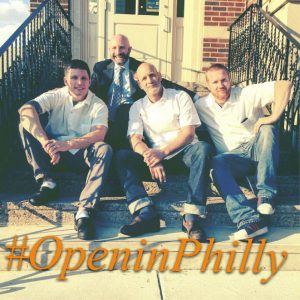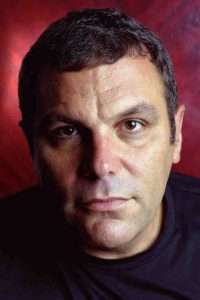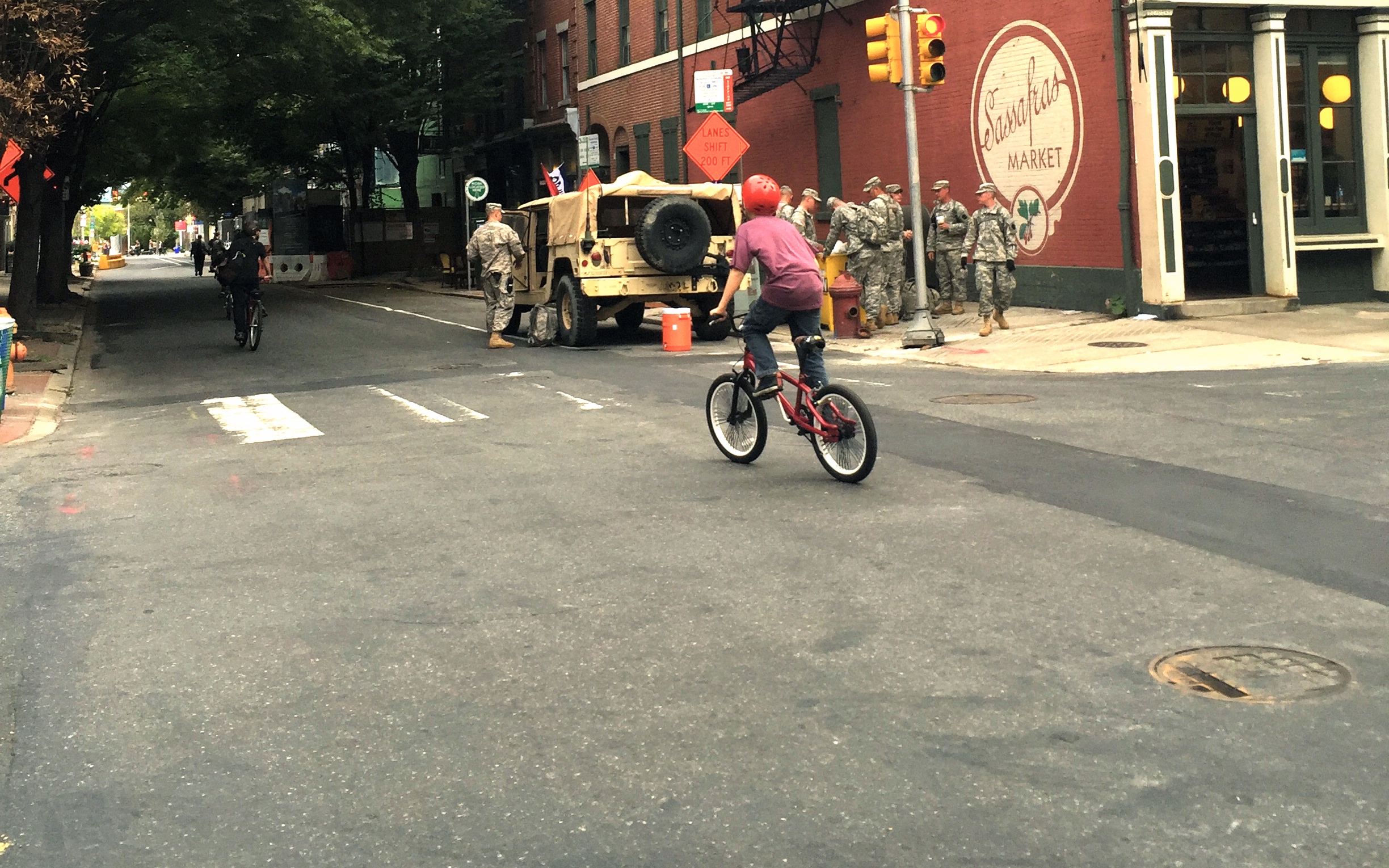By halftime of yesterday’s Eagles game, Marc Vetri’s Facebook post from Saturday had received over 4,000 likes and more than 300 comments. In case you didn’t see it, Vetri asked some important questions about this past weekend’s papal visit—particularly given that we have another huge event on the horizon, 2016’s Democratic National Convention. While that doesn’t promise to be as big a deal as the Pope’s visit, it’s never too early to be constructively introspective about how we do things, in the service of doing better next time around.

The key line in Vetri’s post was this, which he wrote after sharing his excitement over the Pope’s visit: “Instead of engaging the citizens and businesses around this great city in welcoming the Pope, [our elected leaders] have instead decided to roll out the red carpet for everyone making the pilgrimage, and roll us up in the carpet to place in storage until Monday.”
By the time I reached Vetri on his cell phone yesterday afternoon, he was chuckling at the cyber hysteria his comments had provoked. “I guess the Pope beats gluten,” he joked, referring to a previous public position he’d taken that similarly stoked fires.
I wanted to explore the issue further with Vetri, because he’d written precisely what I, and many of my friends, had been thinking. We love this Pope—he is just what we need—and we love that Philadelphia was front and center in the national consciousness for a couple of days. But did we need the heavy militia presence on our streets? Did we need to scare so many residents away? Did we, in fact, sanitize the city too much, as Vetri suggests?
Like me, Vetri loves that the Pope was here. “I had a great day on Saturday,” he said. “I rode my bike all around the Festival, with my five, seven and nine-year-olds. We rode down Fairmount, up Broad and Spring Garden. We had lunch at our pizza place at 19th and Callowhill and hung out with the pilgrims. It was incredibly uplifting. But then I got home to our house in Fairmount—Fairmount!—and it was like a ghost town. There was nobody in the street. It was as quiet as it’s ever been. Doors were locked, shades were drawn. This should have been a celebration, but it felt like a morgue. It felt like something was wrong.”
“Look, I was here, this was an awesome event,” Vetri said. “It just sucks that so many Philadelphians weren’t here to enjoy it, too.”
So Vetri wrote a post, as a concerned citizen of Philadelphia, questioning how our leaders had handled the event from the beginning. I asked him to elaborate. “Look, I’m no expert on Homeland Security,” he says. “But it looks like some things were handled wrong. At the start, all we heard was how the city was going to shut down, how everyone would have to walk miles, how Septa wouldn’t run. I couldn’t understand it. Why wouldn’t you add more buses, so more of our citizens could take part in this great event? Why wouldn’t the city have encouraged neighborhoods to have little Pope festivals on their streets? This is going to floor you, because I’m usually critical of this stuff, but we should have done a Restaurant Week promotion this weekend—I would have participated in that, to try and get Philadelphians to share this moment together.”
Two weeks ago, perhaps realizing that their initial sky-is-falling rhetoric had scared residents into leaving town, city officials asked Vetri to take part in an “I’ll be here” promotional video. He did it, but not without speaking his mind first. “I told them, ‘You’re about two months late,’” he said. “You should have started convincing people to stay here and celebrate way earlier.”
Online, Vetri’s comments were met with the usual mix of thoughtfulness and inanity. Most agreed with him, but others took their shots. They told him to quit “whining;” Some focused on one line, that the goal of the Pope’s visit had been to “give a shot of adrenaline into our economy, not hurt small and large business alike so they had to close”—implying that Vetri was more concerned with his own bottom line than the city’s common good. In fact, his Pizzeria Vetri at 19th and Callowhill was busy all day, selling slices to the pilgrims while giving freebies to local police officers. No, in Vetri’s mind, he was defending his fellow Philadelphians.
“Look, I was here, this was an awesome event,” he said. “It just sucks that so many Philadelphians weren’t here to enjoy it, too.”
In effect, Vetri is asking whether, instead of letting a large out-of-town contingent rent out the city for a weekend of great photo ops, there might have been a way to make residents feel like they weren’t in an armed camp? To invite them to partake in the celebration? Isn’t that what Francis would have done? He strikes me as an “everybody is invited to the party” kind of guy.

Over the weekend, fellow restaurateur Stephen Starr raised similar concerns, telling The Inquirer that, “What should have been a feeling of family and community was turned into a police and military operation.” Starr came under fire for the first part of his quote, that “this affected business worse than Hurricane Sandy.” But both Vetri and Starr raise important issues. They’re both customer service experts—something our elected officials could stand to learn about. In the city’s hyperventilating need to score some national public relations points, did they overlook being sensitive to their prime customer base, the local taxpayer?
Vetri points out that, over the summer, his business partner Jeff Benjamin sent three emails to Mayor Nutter and his aide, Everett Gillison, asking if the administration would be interested in sitting down with a group of local hospitality professionals to share ideas on how the Pope weekend could go. They never heard anything back. Instead, think about the way all this went down: The endless string of press conferences, doling out information incrementally about what would be closed, and when, and just how we’d be inconvenienced…usually featuring an exasperated mayor growing weary of the questions. It was a very top-down, old school way of governing. What Vetri and Starr might just be suggesting is that there could have been another way, a way that they’re particularly schooled in: Early on, you could have made your customer part of your decision-making process by listening to him or her.




